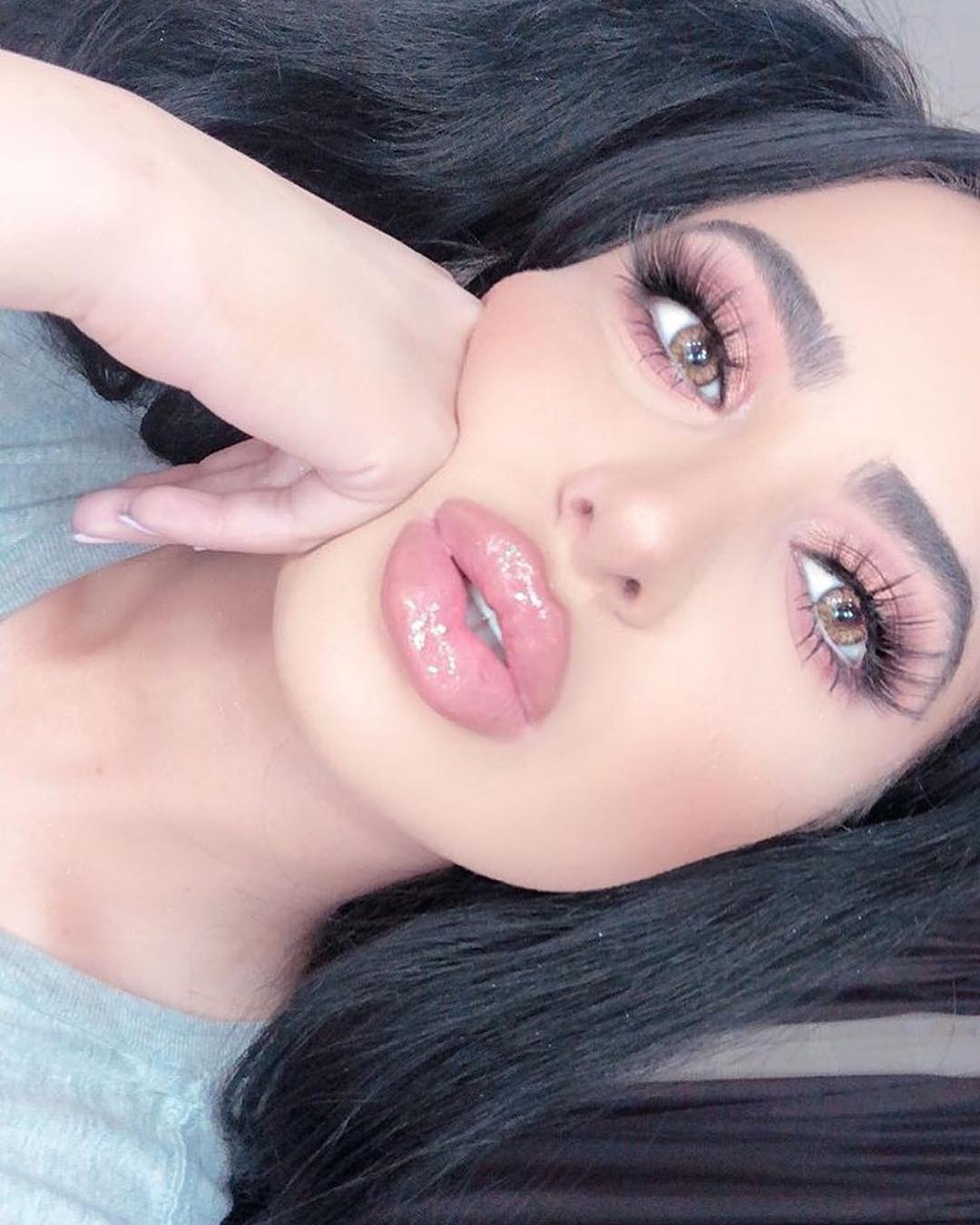
The truth about cosmetic experimentation in animals. Is cosmetic experimentation in animals prohibited? Stop cruelty in the makeup industry by resorting to vegan eyelashes such as the one provided by Tigress Beauty. With our eyelashes you can easily emulate the look of natural eyelashes with extra volume that will help you achieve a beautiful doll-eyed look.
In February 2003, the EU approved the ban on testing cosmetics on animals, which would be effective in two phases. The first, implemented on March 11, 2009, made it illegal:
- Experience cosmetic ingredients in animals, anywhere in the EU, regardless of the existence of a valid alternative,
- The sale or import into the EU of any ingredients to be used in cosmetics (or finished cosmetics) experienced in animals after that date. The sale and marketing of these products is prohibited.
However, three types of animal experiments were excluded from this prohibition; whose illegality became effective in the second phase:
1) Repeated dose toxicity: rabbits or rats are forced to ingest or inhale cosmetic ingredients, or the ingredient is applied to their shaved skin, every day for 28 or 90 days. Then they are dead. This test includes the “sensitization of the skin” (guinea pigs with their shaved skin that are exposed to the substance, or through the ears of rats to see the allergic reactions, then they are exterminated); or tests of carcinogenicity (rats fed for two years with the substances to see if it causes cancer, then they are killed for their analysis).
2) Reproductive toxicity: rabbits or pregnant rats are forced to ingest substances and then killed to assess the toxicity in their foetuses.
3) Toxicokinetic: rabbits or rats are forced to ingest the substance and then are killed to examine their organs and see how it is distributed in their bodies.
This means that, until March 2013, more animals have died from these three tests of toxicity of cosmetic products.
What kind of experiments are used to test cosmetics?
In cosmetic research, painful experiments are carried out on hundreds of thousands of animals every year, including rabbits, guinea pigs, rats, mice. These tests include irritation of the skin or eyes, skin sensitization (causing allergies), toxicity (poisoning), mutagenicity (genetic damage), teratogenicity (birth defects), carcinogenicity (causing cancer), embryonic or foetal genetic damage, Toxicokinetic (to study the absorption, metabolization, distribution and excretion of chemical substances).
What are the alternatives to animal tests?
The cosmetic tests with animals are not specifically required by law. To promote a product must be shown to be safe, and that can be done using validated tests and methods that do not use animals and using combinations of existing ingredients that are safe for use in humans.
It has been estimated that there are about 15,000 ingredients that have already been tested and declared safe. More and more companies that avoid cruelty to animals are refusing to try their products and still produce safe, effective and high quality products.
How can I choose free cruelty products?
It is very easy: buy the products of the brands that appear on this page and that have the logo ‘cruelty free’ (the one in the image). Every time you see this logo, you can be absolutely sure that the final product has not been tested on animals, that the cosmetic ingredients have not been tested on animals and that the manufacturer renews its commitment every year to be “cruelty-free” “after a complete audit.
What does a company say, “we do not test in animals” or “we do not approve tests in animals”?
We all have beauty and hygiene products. Everyone. Well maybe women have more, because makeup falls into this category. And it’s hard to find a woman who does not have at least one makeup item. Therefore, every day we see ourselves using different brands.
At this point we face a problem. Many of these products (shampoos, wrinkle creams, shaving creams, lipsticks, toothpastes and a long etcetera) are previously tested on animals.
It is not the idea to go into gruesome details or to point fingers at the marks (badly that we all use them badly), but we should know that in this process the animals do suffer, and very much. Millions die every year in laboratories around the world. For that reason we need to look for a company that does not test on animals, but it also proves that the ingredients of its products have been tested on animals.
Some figures of cosmetic experimentation in Europe and the world
According to the latest available statistics, more than 12 million animals are used in EU research each year. This equates to 137 animals suffering cruel and painful experiments every 10 minutes.
The 27 countries of the EU reported in 2008 the use of: 24,199 dogs, 312,681 rabbits, 649,183 birds, 10,449 monkeys.
Recent research from the British Union Against Vivisection (BUAV) and the Dr. Hadwen Trust suggest that more than 115 million vertebrates could be used in experimentation around the world each year. It is estimated that the ten countries that most use animals in experiments are the United States, Japan, China, Australia, France, Canada, the United Kingdom, Germany, Taiwan and Brazil.
In Europe, only France, the United Kingdom and Germany use more than 55% of the total number of animals used throughout Europe. Some 56% of the “old world” monkeys (such as macaques) used in experiments are still imported for research within the European Union.
Compared to the latest 2005 EU statistics, the number of animals used in the experimentation has increased considerably: in Spain more than 51%, in Estonia (more than 610%), Ireland (more than 197%), Austria (more 32%) and Portugal (more than 22%).
Stop cruelty in the makeup industry by resorting to vegan eyelashes such as the one provided by Tigress Beauty. With our eyelashes you can easily emulate the look of natural eyelashes with extra volume that will help you achieve a beautiful doll-eyed look.